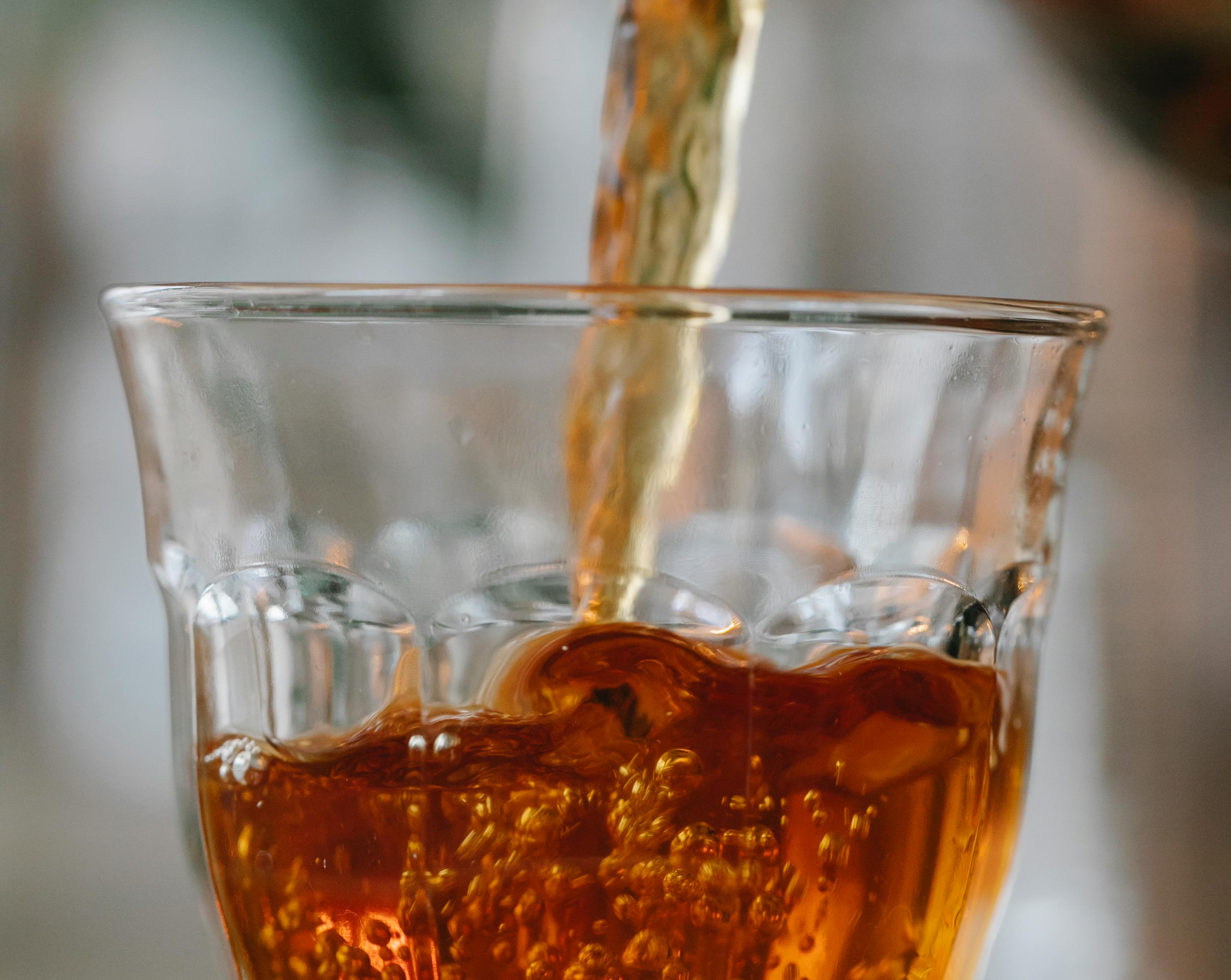Fasting is an important part of many cultures and religions. It is often used to promote spiritual and physical healing, and it has become popular in recent years for its potential health benefits. The question of whether or not black tea breaks a fast has been asked many times. This article will provide an overview of the research on this topic, as well as some tips on how to determine what may break a fast for you.Yes, black tea does break a fast.
Health Benefits of Black Tea
Black tea has been consumed for centuries due to its health benefits. It is rich in antioxidants, which can help protect your cells from damage and reduce inflammation. In addition, black tea is a good source of vitamins, minerals, and caffeine, which can provide a boost of energy and help to improve concentration. Studies have also shown that it may help to lower cholesterol levels and reduce the risk of certain types of cancers.
Black tea can also be beneficial for promoting heart health. Studies have shown that regular consumption of black tea may reduce the risk of stroke and heart attack. It may also help to reduce blood pressure levels and improve circulation. Additionally, black tea contains flavonoids which have been shown to reduce the risk of developing coronary artery disease and other cardiovascular problems.
Finally, black tea can be beneficial for promoting digestive health. Studies have shown that it may help to protect against ulcers, bacterial infections, and inflammatory bowel disease. Additionally, it can aid in digestion by increasing bile production in the stomach and decreasing gastric acid secretion. This helps to break down food more efficiently and prevent indigestion or bloating after meals. Furthermore, regular consumption of black tea may also help to reduce symptoms associated with Irritable Bowel Syndrome (IBS).
Is Black Tea a Diuretic?
Black tea is an herbal beverage made from the leaves of the Camellia sinensis plant. It is one of the most widely consumed beverages in the world, and has been consumed for centuries. While there is no scientific evidence to suggest that black tea is a diuretic, many people believe that it can help increase urine production and thus help rid the body of excess water.
The active ingredients in black tea are tannins, caffeine and other polyphenols. Tannins are known to possess astringent properties, which may cause increased urine production. Caffeine is a stimulant that can also contribute to increased urination. Polyphenols are known to have antioxidant properties, which may help to reduce inflammation in the body.
Although black tea does contain these compounds, studies have not shown any conclusive evidence that it can act as a diuretic. In fact, some research suggests that while caffeine can increase urine production, this effect does not persist when consumed regularly over time. There are also potential side effects associated with drinking too much black tea, including headaches, nausea and increased heart rate.
Therefore, although some people believe that drinking black tea can help to reduce water retention in the body, there is no scientific evidence to support this claim. If you are looking for a natural diuretic, it’s best to consult your doctor or nutritionist who can advise you on what options might be best for you.
Can Black Tea Be Used During Intermittent Fasting?
Black tea can be a great beverage to consume during intermittent fasting. While it is important to avoid consuming calories from beverages, unsweetened black tea can provide a great source of antioxidants and other health benefits without adding any calories to your daily intake. It can also help reduce hunger cravings during fasting periods and keep you feeling full for longer. Additionally, the caffeine in black tea can help boost energy levels and focus, which can be beneficial if you are trying to stay active while fasting.
Intermittent fasting is all about consuming meals within a certain time frame, so it is important to make sure that black tea consumption fits within this schedule. If you are doing an 8-hour eating window, for example, then drinking black tea throughout the day would not be beneficial as it would interfere with your eating schedule. To get the most out of your intermittent fasting routine, try limiting yourself to drinking one or two cups of black tea in the morning before or after breakfast or in the evening before dinner.
It is also important to note that while unsweetened black tea does not contain any calories, adding sugar or other sweeteners will add calories that could impact your overall caloric intake for the day. If you do choose to sweeten your tea, try using natural alternatives such as honey or stevia instead of refined sugar as these will have less of an impact on your daily calorie count.
Overall, drinking unsweetened black tea during intermittent fasting can provide a wide range of health benefits without compromising your overall routine. Just remember to make sure that it fits within your eating schedule and avoid adding any high-calorie sweeteners if possible.
Caffeine Content in Black Tea
Black tea is one of the most popular teas in the world. It is known for its bold flavor and dark color. But did you know that it also contains a good amount of caffeine?
The amount of caffeine found in black tea varies depending on the type, steeping time, and how it’s prepared. Generally speaking, black tea contains about half the amount of caffeine as coffee. A cup of black tea can range from 14 to 70 milligrams of caffeine, while a cup of coffee typically contains 95 to 200 milligrams.
The actual caffeine content in any given cup of black tea depends on several factors, including how long the leaves are steeped and how strong the blend is. For example, if you steep your black tea for a longer period of time or use a stronger blend, then you’ll likely end up with more caffeine.
It’s important to note that some herbal teas may also contain small amounts of caffeine as well. For instance, some types of rooibos tea can contain up to 50 milligrams per cup. So if you’re looking for a low-caffeine alternative to traditional teas or coffees, it’s best to check the label before consuming it.
Overall, most varieties of black tea contain moderate levels of caffeine that make them an ideal choice for those who want an energizing boost without all the jitters associated with coffee. So if you’re looking for a tasty way to get your daily dose of caffeine without having to drink coffee every day, then black tea may be just what you need!

The Effect of Black Tea on Fasting Glucose Levels
Black tea is a popular beverage consumed around the world. It has been associated with various health benefits, including improved cardiovascular health and reduced risk of certain cancers. Recent research has also suggested that black tea may have beneficial effects on fasting glucose levels. A number of studies have investigated the relationship between black tea consumption and fasting glucose levels in humans, with some promising results.
One study examined the effect of long-term black tea consumption on fasting glucose levels in a group of healthy adults. The study found that those who drank 3 cups of black tea per day for 12 weeks had significantly lower fasting glucose levels than those who did not consume any black tea during the study period. This suggests that regular consumption of black tea may help to keep fasting glucose levels within a healthy range.
Another study looked at the effects of an acute dose of black tea on fasting glucose levels in healthy adults. The results showed that drinking a single cup of black tea led to a significant decrease in fasting glucose levels over the next two hours compared to when no tea was consumed. This suggests that even one cup of black tea can have an immediate effect on fasting glucose levels.
Overall, the available evidence suggests that regular consumption and an acute dose of black tea may both have beneficial effects on fasting glucose levels in humans. More research is needed to better understand the exact mechanisms behind this effect and to determine whether different types or preparations of black tea are more effective than others.
Making a Cup of Black Tea
Making a cup of black tea is an easy task that can be done in a few simple steps. First, you’ll need to gather the necessary supplies – black tea leaves, hot water, and a teapot or other container for steeping the tea. Once you have all the supplies, measure out one teaspoon of loose-leaf black tea into the teapot. Pour hot water over it, making sure to cover all of the tea leaves. Let the tea steep for three to five minutes, depending on your desired strength. When the steeping time is up, strain the tea and pour it into a mug or cup. If desired, add some milk or honey to sweeten it. Enjoy your cup of freshly brewed black tea!
Making black tea is an easy way to enjoy this classic beverage. With just a few simple steps and supplies, you can make a delicious cup of black tea in no time at all!
The Difference Between Green and Black Tea
Green tea and black tea come from the same plant, Camellia sinensis. However, the difference between green and black tea lies in how they are processed. Green tea leaves are steamed or pan-fried to stop oxidation, which preserves their green color and natural flavor. The leaves are then rolled up and dried. This production process produces a mild, light-colored tea that has a grassy flavor.
Black tea is made from leaves that have been completely oxidized. The leaves are withered, rolled up, and then allowed to oxidize until they turn black or dark brown. This oxidation process produces a stronger flavor than green tea, with a darker color when steeped in hot water.
In terms of caffeine content, black tea usually contains more than green tea; however, this isn’t always true depending on the type of green or black tea you purchase. Some varieties of green tea contain more caffeine than some varieties of black tea because of differences in processing methods and final product selections.
In terms of health benefits, both types of teas contain polyphenols—natural compounds found in plants that act as antioxidants—and can benefit overall health when consumed regularly. Green tea has been linked to better heart health, improved digestion, stronger bones, weight loss and cancer prevention while black tea is associated with improved mental alertness and stress relief.
Overall, both types of teas offer potential health benefits depending on what you’re looking for—the main difference between them is the processing method used to create each type which will determine their flavor profile and caffeine content.

Conclusion
Black tea is a great accompaniment to a fasting period, and it can be beneficial for improving health. Studies have shown that it can help improve digestion and reduce inflammation. However, it is important to remember that black tea does contain caffeine, so it should be consumed in moderation if you are fasting. Additionally, the amount of caffeine may vary depending on the type of tea being consumed and how it was brewed, so this should be taken into consideration when deciding whether or not to include black tea while fasting. The bottom line is that black tea can be enjoyed while fasting but should be done so with caution.
Overall, black tea has many potential health benefits and can be a great addition to any fasting regimen. However, like with all beverages, individual preference and moderation should always be taken into account when determining if black tea can break a fast or not.
